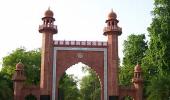These self-appointed well-wishers of AMU are basically for the control or police model of university governance.
They have no faith whatsoever in the democratic functioning of the universities, observes Faizan Mustafa, former dean, Faculty of Law, and Registrar, Aligarh Muslim University.
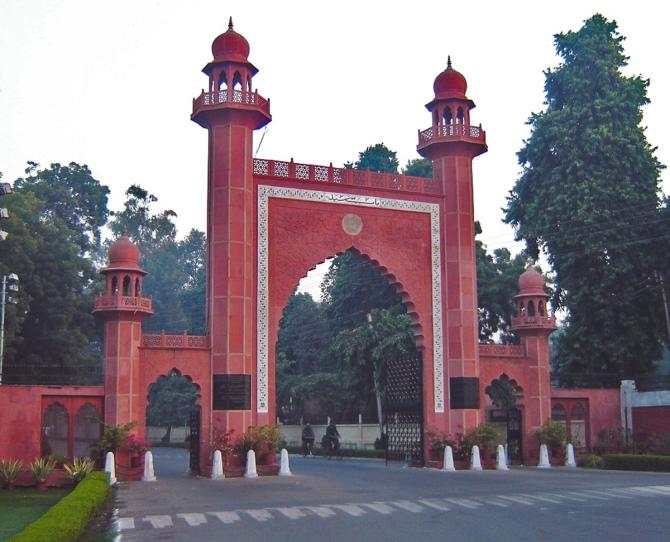
Is Aligarh Muslim University a divine institution that cannot be reformed at all as any talk of reform would be blasphemous?
Is its governance structure entirely different from other universities in India and elsewhere in the world?
Is AMU's executive council really the culprit and cause of all that ails in AMU?
These are the issues that are currently being discussed in the media. But the first question that arises in the context of higher education is the issue of university autonomy.
What does university autonomy really mean? What is the democratic model of university's governance?
The first Education Commission itself clearly defined the purpose of our education system in independent India: 'All education is expected to be liberal. It should free us from the shackles of ignorance, prejudice and unfounded belief...To lead us from darkness to light, to free us from every kind of domination except that of reason, is the aim of education.'
UNESCO has defined the university autonomy as 'a degree of self-governance, necessary for effective decision making by institutes of higher education regarding their academic work standards, management, and related activities.
University autonomy is a broad and generic concept that basically signifies the self-governance of a university and is not confined to just designing the academic curriculum.
University autonomy means autonomy of statutory bodies of the universities on which government nominees too would be there to ensure that bodies work in accordance with university Acts and Statutes.
Fielden mentions four major global models (ranging from control to autonomy) in respect of public universities. His analysis shows that while countries like Malaysia have better State control over public universities, Australia and Britain give more independence to their public universities.
France and New Zealand have semi-autonomous public universities. Singapore prefers semi-independent public universities. The United States and Canada do not have any authority like India's University Grants Commission.
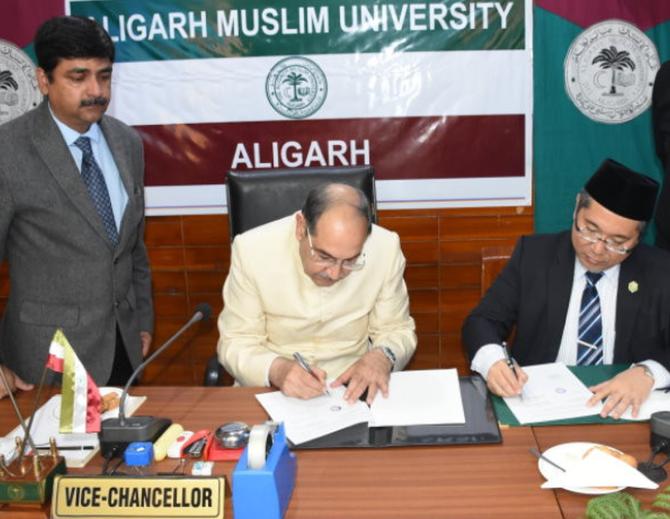
All Education Commissions, all government committees on higher education and education policies talk of university autonomy.
A 15-member high powered UGC committee in 1971 which included eminent educationists like Professor M N Srinivas, Dr R Satyanarayan and Professor Nurul Hasan and headed by former Chief Justice of India and the then vice chancellor of Bombay University Justice P B Gajendragadkar concluded that 'the concept of university autonomy is often misunderstood.'
'It is neither a 'legal concept' nor a 'Constitutional concept'. It is an ethical concept and an academic concept.
'This concept does not question how in a democratic society like ours legislatures are ultimately sovereign, and have a right to discuss and determine the question of policy relating to education, including higher education.
'The concept of university autonomy, however, means that it would be appropriate on the part of democratic legislatures not to interfere with the administration of university life, both academic and non-academic.'
The central government's visionary and futuristic new National Education Policy also spoke about greater autonomy to educational institutions that perform well.
Clause 9.3(c) of the NEP envisages moving even towards faculty and institutional autonomy.
Clause 9.3(g) provides that the governance of higher education institutions should be by highly qualified independent boards having academic and administrative autonomy; Clause 9.3(h) promised 'light but tight' regulation by a single regulator for higher education in place of multiple regulators.
Opposing university autonomy is basically opposing the Modi government's vision.
Such opposition from the university teacher who prefers to write anonymously is deeply disturbing.
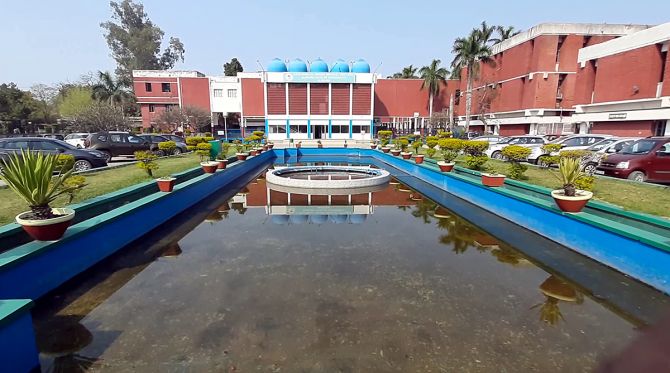
Let us now look at the governance structure of AMU to see how far it is consistent with the recommendations of education commissions, the Gajendragadkar Committee and the New Education Policy.
The Aligarh Muslim University was founded by Sir Syed Ahmad Khan in 1877 as the MAO College. In 1920, this college was converted into AMU.
Entry 63 of the Union List in Schedule VII of the Constitution lists AMU, the Banaras Hindu University and Delhi University as institutions under the exclusive jurisdiction of Parliament.
In fact, if you read Entry 62, 63, 64 and 65 together, it would become clear that the Constituent Assembly deemed AMU as a 'National Institution' about which in spite of being situated in Uttar Pradesh, not the Uttar Pradesh legislative assembly but Parliament would have the right to legislate.
Education till 1976 was in the state list.
The Justice Gajendragadkar Committee observed that 'The Aligarh Muslim University has over the years made a notable contribution in the education of Muslims, and has contributed to the study of Muslim culture and philosophy in depth as one of its prominent academic activities, and the academic work, writings and speeches of its scholars have consistently emphasized the fact that Indian culture is composite in character, and to the enrichment of this composite culture, Muslims have made a significant contribution.
'Similarly, the Banaras Hindu University has over the years specialised in the study of Hindu culture and philosophy, and has emphasised the progressive character of the Hindu way of life, and yet it cannot be regarded as a Hindu institution.
'These two universities are national institutions and must always remain as such.'
Prime Minister Modi recently termed AMU as a 'mini India.' The prime minister acknowledged that 'AMU alumni are spread all over the world and they take lot of pride in their alma mater.'
'Their pride is justified,' Modi added. 'In hundred years of its existence, AMU has crafted and polished millions of lives, giving them modern and scientific thinking and inspiring them to do something for the society and nation.'
The Centre for the World Universities Rankings ranked AMU 8th in Indian universities. The National Assessment and Accreditation Council, a government organisation, gave AMU A+, which is quite a high rank.
In India Today's 2022 rankings, AMU was ranked number 4th in the country and was ranked number 1 for offering the highest number of post-graduate courses.
In the ministry of education's National Institutional Ranking Framework, AMU has been consistently ranked among India's top 11 universitie. Amongst the central universities, it has always been in the top 5.
Some 500 to 550 PhDs are produced at AMU every year. Like any other university, no PhD can be submitted at AMU if it has more than 10 percent plagiarism.
Its individual departments have also been in top ten departments of certain disciplines.
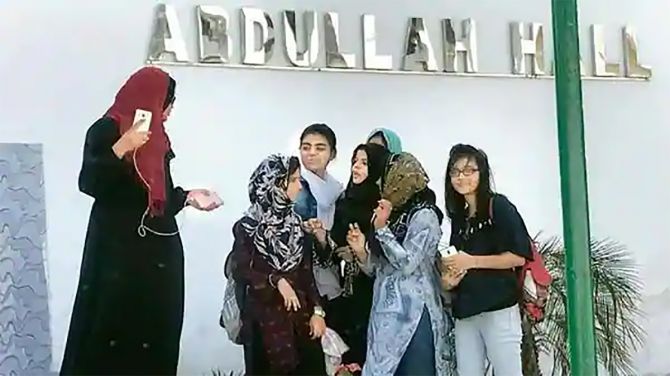
To say that 'AMU is anything but a university' is not only mischievous, but also factually wrong.
AMU's students are highly disciplined and unlike other reputed institutions an overwhelming majority of them do not drink or take drugs.
In fact, they do not bother much about the absence of a students union or their representation in the AMU court.
What is AMU's governance structure?
AMU like any other university in India is governed by its Act and Statutes which were passed by Parliament.
The President of India as Visitor has the final say in all its decisions and has the power to annul or nullify decision of any officer or authority of the university such as the Academic Council, Executive Council, Finance Committee and the Court.
In over a century, not even a dozen decisions by the AMU authorities were annulled by the President.
Three nominees of the President are members of the AMU executive council. Calling such an august body as an incestuous club is defamatory.
In the AMU court, in addition to 14 members of Parliament and the UP governor's nominee, the President nominates five individuals to the court. Thus, sufficient government participation is present in the university authorities.
Of over 180 members, only the proctor, 5 provosts and the dean, students welfare owe their membership to the VC's pleasure.
The AMU court like other universities has 25 alumni representatives, 10 donors, 14 MPs, 5 President's nominees, 10 representatives of learned professions, 5 representatives of non-teaching staff, 15 students.
Since several Waqf properties were given to the MAO College/AMU, waqf boards had been given a token representation. The Muslim Education Conference and Muslim cultural associations had played a leading role in the foundation of the university and therefore some small representation for historic reasons has been given to them.
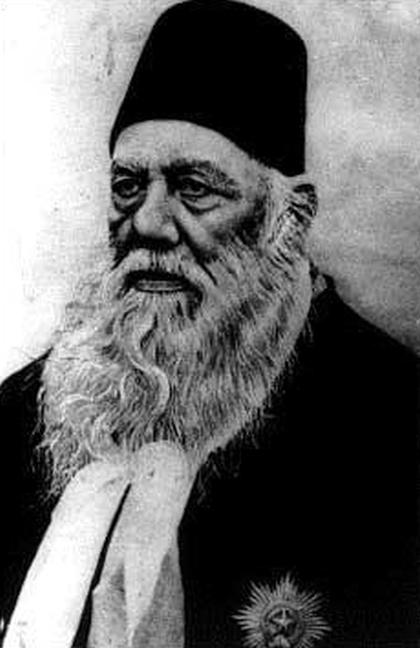
IMAGE: Sir Syed Ahmad Khan, the founder of the Aligarh Muslim University.
Photograph: Courtesy Wikimedia Commons
The executive council has similar composition just like all Indian universities. AMU does not have any unique or different composition.
Those having venom against the AMU executive council because it largely consists of university employees as its members seem to be absolutely ignorant of the composition of executive councils at other universities. AMU's executive council is just like Delhi University, JNU, Calcutta University, Madras University and the executive councils at other universities. Blaming the AMU executive council is wrong.
These self-appointed well-wishers of AMU are basically for the control or police model of university governance. They have no faith whatsoever in the democratic functioning of the universities.
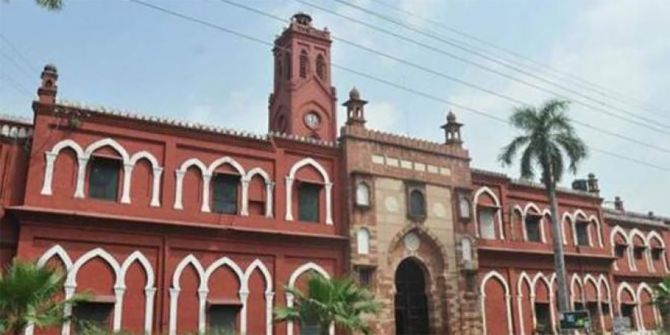
Certainly, no university including AMU can misuse or abuse its autonomy.
The Supreme Court has held in catena of cases that the 'right to administer' given under the Constitution does not include the right to maladminister.
Deliberately not holding elections of the university authorities for years together in any university is not only negation of democratic governance of the universities, violation of statutory provisions, but also a sort of maladministration.
Whenever any university indulges in maladministration, the government has a right to temporarily take over the affairs of the university. This occurred both at BHU as well as AMU.
In 1965, the AMU VC was assaulted in the Students Union Hall. The Government of India first brought in an ordinance and then passed an amendment in the AMU Act, 1965.
A man of Justice M C Chagla's stature as education minister while introducing the Bill repeatedly assured the House that the government was not changing the 'character of the university' and only as a temporary measure packing the university court and the executive council with its nominees.
In 1972, Parliament again amended the Act and restored democratic governance with the number of government nominees to the court and executive council drastically reduced.
While piloting the amendment Bill, then education minister Professor Nurul Hasan specifically referred to the Gajendragadkar Committee recommendations.
Those blaming AMU's executive council must know that it was the Gajendragadkar committee that suggested that the court in universities depending on the size should consist of 100 to 150 members.
It recommended that 60% of the court should be internal. Ten percent alumni association members should be members of the court
For the executive council, the committee recommended a size of 20 with a majority of members being university teachers and the rest elected by the court/senate.
Most of the members of the court and executive council after the 1972 Amendment were from the university itself with current students and alumni getting 15 seats each.
In 1981, a more comprehensive amendment was legislated by Parliament to make the court and executive council more democratic and to largely restore the pre-1965 composition and powers of the executive council and court.
As far as government funding is concerned, it is the government's prerogative.
In any case, Article 30(2) clearly bars the government from discriminating against an Article 30 institution.
The Supreme Court has consistently held that the government cannot attach such conditions to its 'aid' in respect of an Article 30 institution that would destroy the very character of the institution.
Chief Justice B N Kirpal in a 11-judge bench judgment of the TMA Pai Foundation (2002) quoted the first Education Commission headed by Dr S Radhakrishnan: 'Higher education is, undoubtedly, an obligation of the State, but State aid is not to be confused with State control over academic policies and practices.'
While all universities must make efforts to reflect the diversity of our society, there can be no reservation for the VC's position.
Under Indian law, a single post cannot be reserved as otherwise it would amount to 100 percent reservation.
While AMU did have few OBC as VCs in the recent past, Delhi University and BHU in over hundred years have hardly had any OBC as VC.
But the so-called experts of higher education have never spoken about these universities. Even at AMU, they do not care about the poor representation of SC, ST and OBC students in AMU. Their only concern for the post of the VC is intriguing.
I have served as a member on several search committees for the vice-chancellors. There is indeed a great dearth of efficient, bold and competent academic administrators.
The job of the VC is not to teach or write himself, but to create an ambience and conducive environment in which real knowledge creation takes place.
Accordingly, UGC qualifications specifically mention 'academic administration' as one of the qualifications for a VC.
Ideally, bureaucrats, diplomats, army officers, judges and even business leaders should be eligible for the post of VC.
Till 1965, AMU's vice chancellor was elected by the court from amongst its members.
Rulers of princely states, alumni, representatives of various societies and those who played a leading role in the Aligarh movement were given membership of the court.
Maybe some regions/Muslim groups got over-represented, but there was then no concept of OBC. The long list of foundation members of the first AMU court annexed with the AMU Act 1920 mentions out of 124 foundation members there were just four members from Bihar.
OBC reservation in central institutions at the level of student admissions was introduced only in 2006.
In 1972, the government started appointing VCs on the recommendation of search committees. Why did search committee not pick any OBC candidate?
Why the search committees recommended people from UP and Hyderabad is not known.
AMU cannot be blamed for the panels recommended by the search committees. As a matter of fact, universities should be governed by its best elements or they will perish.
The AMU Act and Statutes, its court and executive council are similar to other universities.
AMU is a top ranking university with an extremely bright future. It has a great role to play in our national life. Sarcastically calling AMU as divine and sacrosanct shows ignorance not only about AMU, but the entire higher education sector. Its Act was amended several times to bring reforms.
The AMU fraternity must strive to take the university to the zenith of excellence.
Faizan Mustafa is a former dean, Faculty of Law and Registrar of Aligarh Muslim University.
He has been the Vice Chancellor of two universities.
The views expressed are personal.
Feature Presentation: Rajesh Alva/Ashish Narsale/Rediff.com




